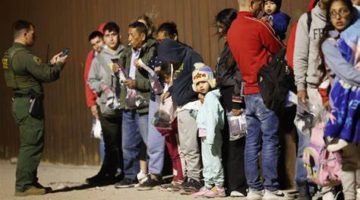MIAMI/OPA-LOCKA — Lost in the South Beach glitz and tropical glamour usually associated with South Florida is the fact that hunger is no stranger to many people who live and work in Monroe, Miami-Dade, Broward and Palm Beach counties.
In fact, a recent national study shows that Miami-Dade is one of the nation’s hungriest counties.Feeding America reported that almost 18 percent of Miami-Dade residents are food insecure, about 16.5 percent in Broward and Palm Beach and under 13 percent in Monroe. Statewide, it is 18.7 percent.
The U.S. Department of Agriculture’s describes food insecurity as having “limited or uncertain access to adequate food.”
In addition, many of those in the four-county area who are considered food insecure live above the income threshold. The treshold was established to determine eligibility for food programs such as the Supplemental Nutrition Assistance Program or SNAP (more commonly known as food stamps).
The percentage of those who are food insecure but earn too much money to qualify for federal help is estimated at 32 percent for Monroe, 20 percent for Miami-Dade, 34 percent for Broward and 39 percent for Palm Beach.
The percent of children who are food insecure but whose families do not meet eligibility requirements for SNAP or the Women, Infant & Children (WIC) food program jumps significantly in Miami-Dade, to more than 33 percent.
Two initiatives have been trying to fill some of this food gap: Farm Share and a citizen developed program in Opa-locka.
In its more recent effort, members of Farm Share teamed up Saturday with Christ Fellowship Church, state Rep. Frank Artiles, R-Miami, and student volunteers from Miami Jackson High School in Miami’s Allapattah neighborhood to distribute food at the school.
Within the first hour, 300 families received bananas, romaine lettuce, sweet potatoes, plantains, potatoes, frozen lamb and non-perishable foods such as rice, beans and dried fruit. They more than doubled, to 700, within a few hours, said Mia DeVane, Farm Share’s director of communications and development.
“Farm Share is the largest fresh produce program in Florida and the only statewide and local food bank program that does not charge a fee for any food it provides to community organizations,” said DeVane.
Farm Share, which is based in Homestead, collects food from farmers and also distributes it in different parts of the community.
Farm Share also serves hundreds of nonprofits that pick up food from its facilities and take it back to their communities Mondays through Fridays, DeVane said.
“Farm Share has provided more than $40 million in food to those in poverty in Florida” in 2013, DeVane said.
Artiles added that, by providing food to people in need, Farm Share “saves produce that would be discarded” by farmers because many supermarkets do not want fruits or vegetables that do not meet a certain aesthetic criteria, what DeVane called “minor imperfections.” Giving the extra or unmarketable produce to Farm Share can earn up to a 200 percent tax credit for farmers, DeVane said.
In Opa-locka, help comes from a group of women who have formed GRUB (Giving Regardless, United Bodies) and feed more than 100 people the third Saturday of the month from a temporary distribution center in front of an abandoned grocery store in the depressed Magnolia Gardens neighborhood. The women use their own resources, cooking the food at home and giving it to neighbors.
GRUB is not affiliated with any church or nonprofit and receives no money from any government entity to provide its hot meals to single mothers and their children, elderly bachelors, the homeless people and shut-in seniors. But it accepts small donations from entities like the South Florida Home Childcare Association.
“We just get together and feed the neighborhood,” said Diana Smith, who, with her daughter Kim, plays a key role in GRUB.During a recent Saturday, Kim Smith dropped off plates of food to shut-ins in a semi-abandoned building owned by a local church that is both next-door neighbor and landlord. She kept her car windows rolled down so she could call out to passerby – most by name – reminding them to come by and “grab a plate.” Kim Smith was out of work when she, her mother and relatives and friends decided to feed their neighbors, starting this Spring. “Ninety percent of the time, people don’t eat,” said Smith. Many of those who come out for the free meal each month are illiterate, isolated or have no health insurance, she said. “We are the forgotten.”









No Comment